Captain America, also known as Steve Rogers, is one of the most iconic and recognizable comic book heroes of all time. He first appeared in Captain America Comics #1 in 1941, and since then, he has been adapted into countless forms of media, including comics, movies, television shows, and video games. In this article, we’ll take a look at the evolution of Captain America, from his creation during World War II to his current place in popular culture.
The Birth of Captain America
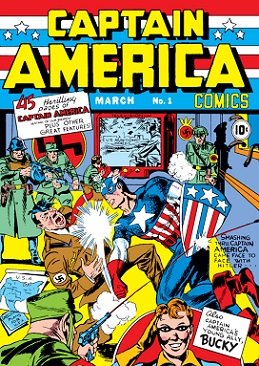
Captain America was created by Joe Simon and Jack Kirby as a response to the political climate of the time. The character was first published in Captain America Comics #1 in 1941, and he quickly became a cultural phenomenon. The character’s origin story, in which frail Steve Rogers is transformed into a super soldier by the government, resonated with readers and established Captain America as a symbol of American patriotism and freedom.
The Golden Age of Captain America
During the 1940s, Captain America was one of the most popular comic book characters in America. He was featured in several comics, including Captain America Comics and Tales of Suspense, as well as in a daily newspaper comic strip. The character’s popularity was further cemented by a series of movie serials, which starred Dick Purcell as Captain America and Lorna Gray as Peggy Carter.
The Silver Age of Captain America
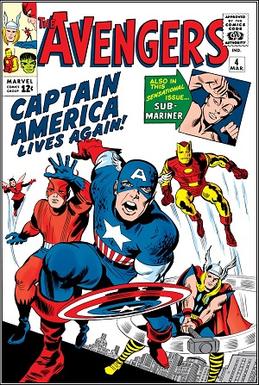
In the 1950s and 1960s, Captain America comics were aimed at a younger audience and the character was portrayed as more of a boy scout. The comics were also more science fiction oriented. This era also saw the introduction of new characters such as Captain America’s sidekick Bucky and the villain Red Skull.
The Modern Age
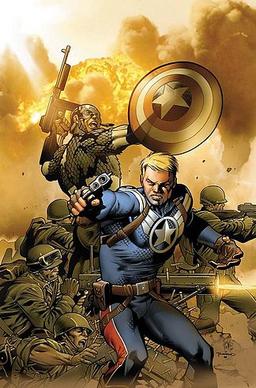
In the 21st century, Captain America has continued to be a popular and enduring character. He has been featured in several comic book series, including The Ultimates, Captain America: Reborn, and Captain America: Steve Rogers, which have explored different aspects of the character. He has also been adapted into several films, including Captain America: The First Avenger, Captain America: The Winter Soldier, Captain America: Civil War, and Avengers: Endgame, which was a critical and commercial success.
The Different Suits of Captain America
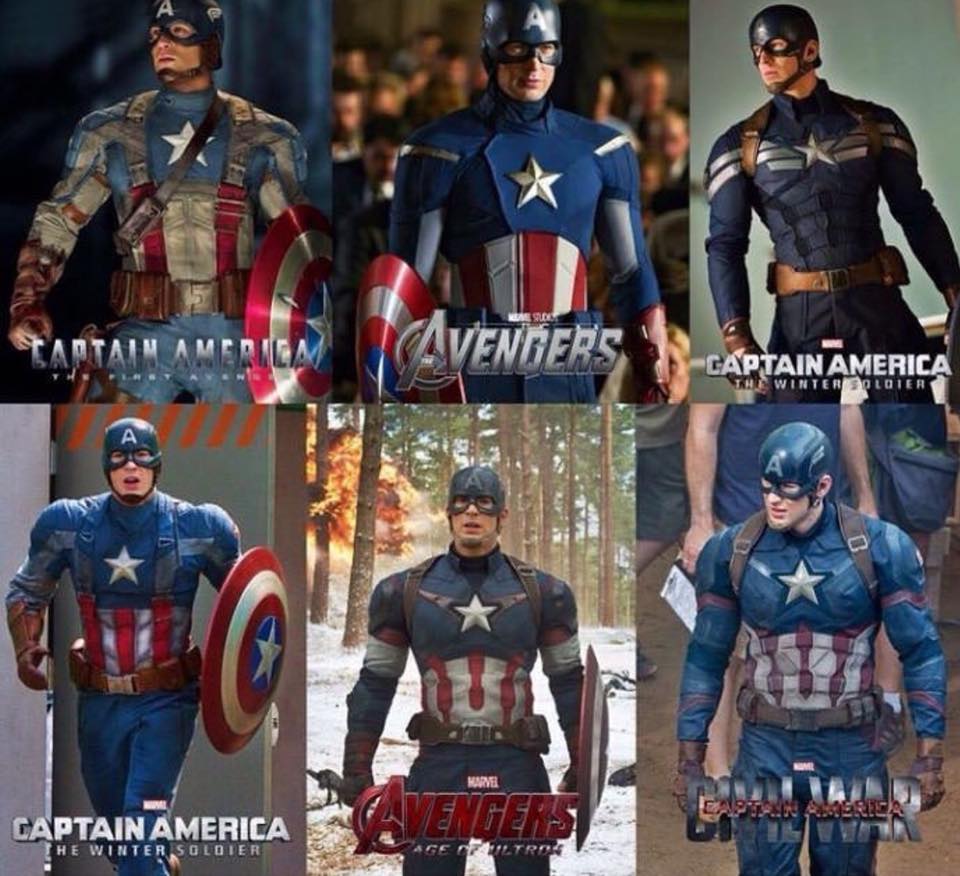
Captain America has worn several different suits throughout his long history. His original suit, which he wore in the Golden Age comics, featured a red, white and blue suit with a star symbol on his chest and an A on his forehead. In the Silver Age, the suit was modified to include more colors and a more patriotic design. The suit worn by Chris Evans in the Captain America films features a more modern and technologically advanced suit with a red, white and blue color scheme, and an updated star symbol on his chest. The suit worn by Evans in the Avengers films is a variation of the suit worn in the Captain America films with some added features such as reinforced shoulder pads and a more battle ready design.
Adapting Powers
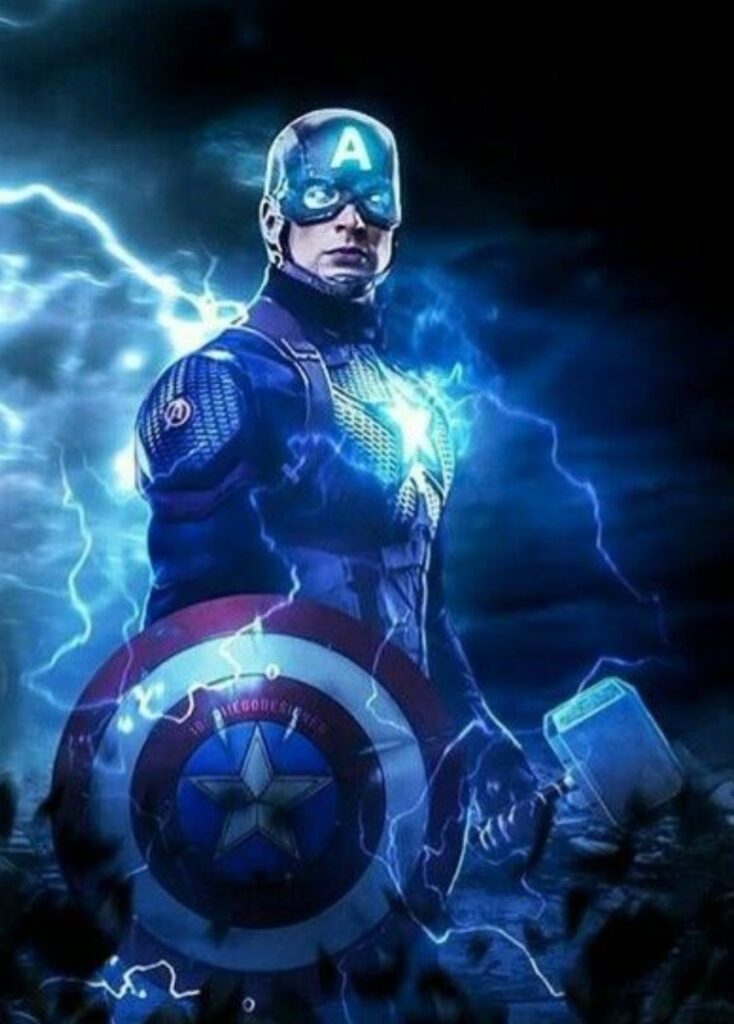
Throughout his history, Captain America’s powers have also undergone changes and adaptations. In the Golden Age comics, Captain America had powers such as super strength, super speed, and the ability to jump higher and run faster than an ordinary human. In the Silver Age, his powers were retconned to include his ability to throw his shield with great accuracy and his increased stamina. In the comics, films, and TV shows of the modern era, Captain America’s powers have been further developed and expanded, including enhanced durability and increased agility, as well as access to advanced technology such as the Vibranium shield.
Captain America is a comic book icon, who has stood the test of time and evolved with the changing times. From his creation in 1941 to his current place in popular culture, Captain America’s enduring legacy is a testament to the character’s enduring popularity and appeal. His iconic suit and powers have undergone changes throughout the years, but the core of the character remains the same: a symbol of American patriotism, freedom, and hope, who uses his extraordinary abilities to protect and defend the innocent and inspire others to do the same.











